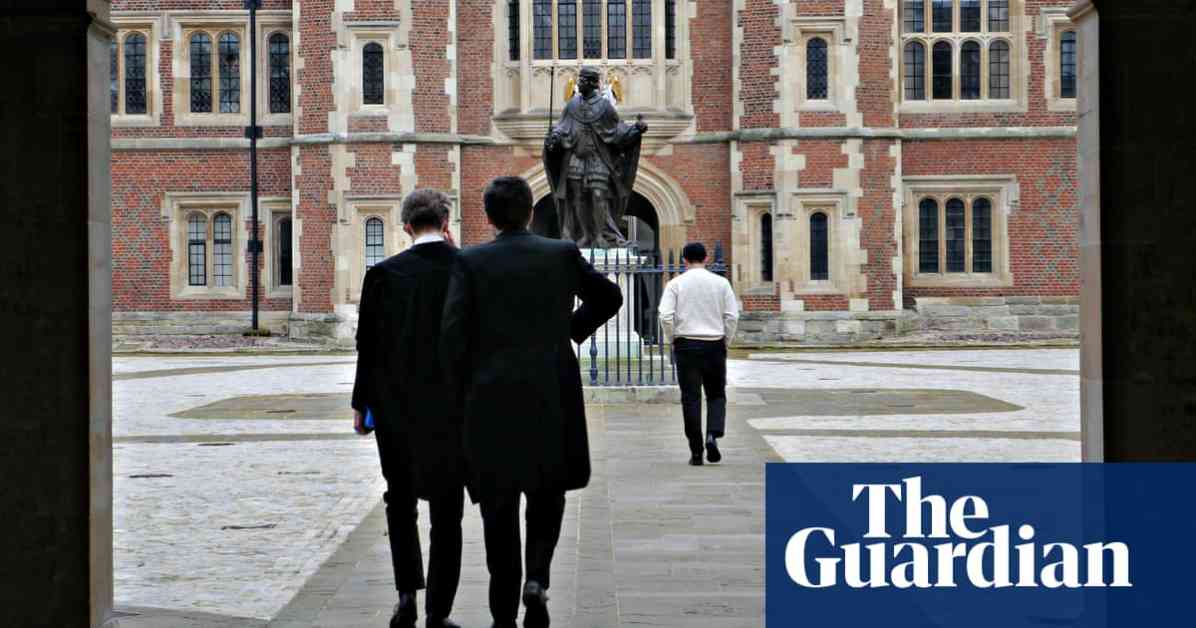Eton College Responds to VAT Adjustment with £63,000 Annual Fees
Eton College, one of the most prestigious and renowned private schools in the UK, has recently made headlines by announcing a significant increase in its annual fees. The school, known for educating some of the country’s most influential figures, sent a letter to parents informing them of the fee hike in response to the government’s decision to remove the VAT exemption on private schools.
The annual fees at Eton College will now amount to approximately £63,000, a substantial increase from the previous £52,749. In the letter to parents, the school expressed regret over the government’s choice to tax education in this manner. The provost and fellows at Eton College stated, “We are disappointed that the introduction of VAT will occur partway through an academic year and at short notice. We recognize the concern that will be felt by many parents following this announcement.”
Implications of the Government’s VAT Adjustment on Private Schools
The government’s decision to remove the VAT exemption and business rates relief for private schools is aimed at generating funding for the recruitment of 6,500 new teachers in state schools. Currently, independent schools benefit from an exemption that allows them to avoid charging a 20% VAT on their fees due to the supply of education.
This move has prompted other private schools to also consider raising their fees in response to the impending changes. The Girls’ Day School Trust (GDST), representing 23 private schools in England, including Wimbledon High School and Blackheath High School, has announced a 12% increase in fees from the new year to offset the impact of the government’s VAT plans.
The GDST stated in a letter to parents, “We have worked diligently to reduce the overall financial impact of these tax changes on your fees. Fees, inclusive of VAT, will rise by 12% from January 2025. We have managed to mitigate the impact of 20% VAT and the removal of business rates relief by utilizing our size and scale to absorb some of the costs.”
Challenges Faced by Private Schools in Response to VAT Adjustment
The decision to raise fees in response to the government’s VAT adjustment poses challenges for both Eton College and other private schools. While these institutions strive to maintain their high standards of education and facilities, the increased financial burden on parents may lead to concerns about accessibility and affordability.
Private schools face the dilemma of balancing financial sustainability with providing an exceptional educational experience for their students. The need to recruit and retain talented staff, invest in facilities and resources, and offer a diverse range of extracurricular activities all contribute to the rising costs of education.
Government’s Perspective on Ending Tax Breaks for Private Schools
A government spokesperson defended the decision to end tax breaks on private schools, emphasizing the importance of ensuring all children have equal opportunities for success. By redirecting funds from private schools towards state education priorities, such as recruiting new teachers, the government aims to improve educational outcomes for all students.
The spokesperson stated, “It is for individual schools to consider how they manage the cost based on their circumstances, including steps to minimize fee increases.” While the government acknowledges the financial pressures faced by families due to the VAT adjustment, it maintains that the changes are necessary to prioritize investment in state schools.
Impact on Parents and Students
The increase in annual fees at Eton College and other private schools has significant implications for parents and students. Families who have children enrolled in these institutions may face financial strain as a result of the fee hikes, potentially impacting their ability to afford a private education.
For students, the rising costs of education may limit their access to opportunities and resources that are integral to their academic and personal development. Extracurricular activities, specialized programs, and individualized support services may become less accessible to students from families with limited financial means.
Addressing Financial Challenges in Education
As private schools navigate the financial challenges posed by the government’s VAT adjustment, it is essential for them to explore various strategies to manage costs effectively. Schools may need to reassess their budgeting, fundraising efforts, and operational efficiency to mitigate the impact of fee increases on families.
Furthermore, collaboration between private schools, government agencies, and community organizations can help address the broader issues of educational funding and accessibility. By working together to support students from diverse backgrounds and socioeconomic circumstances, stakeholders can ensure that quality education remains accessible to all.
In conclusion, the decision by Eton College and other private schools to raise fees in response to the government’s VAT adjustment reflects the complex financial landscape of education in the UK. While these changes may pose challenges for families and institutions alike, it is crucial for all stakeholders to collaborate and innovate in finding solutions that prioritize the educational needs of students.

